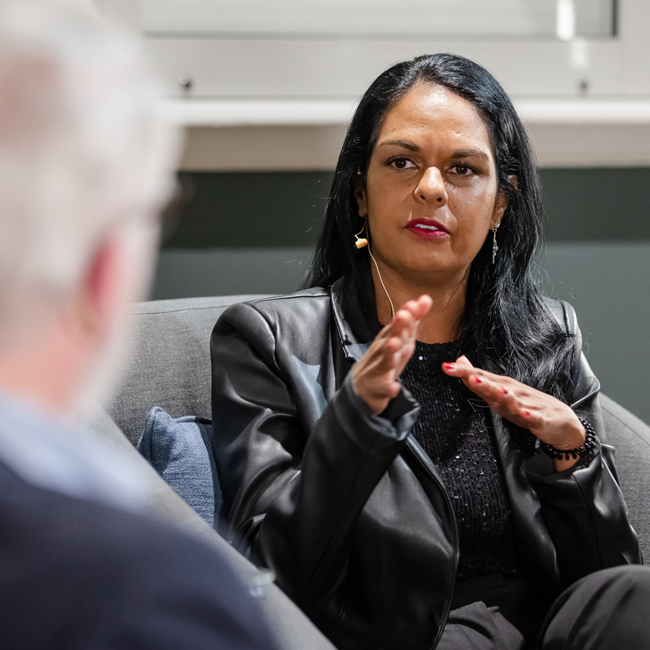
The problem with Australian identity
Opinion + AnalysisRelationshipsSociety + Culture
BY Simon Longstaff The Ethics Centre 1 DEC 1995
Any Australian who has lived abroad for a time would have been confronted with the need to answer questions about the kind of society that exists in the antipodes.
It is usually easy enough to trot out a few clichés about the wonderful land of Oz or alternatively, to dispel a few myths about stereotypical Australian behaviour. Either way, the images (and counter-images) converge on icons such as Bondi Beach, the Outback, the MCG, kangaroos and crocodiles, meat pies, militant trade unions, and so on.
However, now and again, one is confronted by a questioner who wants to probe a little deeper in order to uncover something of the identity of Australia and its people. There may have been a time when it was relatively easy to give the sort of answer that would have commanded the assent of the vast majority of Australians. The content of such a description is now beside the point. Of far more significance is the fact that the question of Australian identity has now become one of the central problems facing the nation. Economic problems may seem to be intractable but they are as nothing when compared to the deeper questions relating to who we are as Australians and where it is that we think we are heading.
The problem with defining Australian identity is that there are so many different sources contributing to the country’s social amalgam. This in itself does not cause an insuperable problem. It is possible for different understandings, representing different starting points, to be grafted onto a common stock of images and beliefs.
The evolution of the United States of America provides the classic example of a process in which immigrant communities have given allegiance to the ‘American Dream’ – that potent admixture of myth, legend and genuine achievement that has helped to shape the American psyche (especially as expressed abroad).
The situation in Australia is patently different. Perhaps this is because of the relatively ignoble cause of European settlement in this country. No tales of Pilgrim Fathers escaping from religious persecution for us. Instead there is the ball and chain and the ignominy of a convict settlement consciously designed to house what were considered to be the dregs of another society. Or perhaps the difference lies in the fact of the ease of our attaining self government and independence. Having been denied the pain of revolution we have also been denied part of the substrate of national identity that comes with the warm glow associated with having thrown off the yoke of what is seen, inevitably with the benefit of hindsight, as being an oppressive regime. Or perhaps the matter is more simply explained as an absence of time since settlement coupled with such rapid change that there has been no opportunity to generate an Australian identity that can be consciously articulated and shared by all.
A rigid sense of what it means to be Australian may be inimical to the development of a tolerant society.
All of this is speculation and the truth about the matter is probably a mixture of these factors as well as a good many more. What is more, it may not necessarily be a bad thing that there is no absolute sense of identity at work in Australia. For example, a rigid sense of what it means to be Australian may be inimical to the development of a tolerant society in which a lack of absolute privilege for any one point of view acts as a social lubricant.
One needs to remember that riots in countries such as the US may have something to do with the fact that so many people feel excluded from the American Dream. Such an exclusion can go beyond there being resentment at the lack of opportunity to a deeper complaint that the dream is, for such individuals, a completely remote and foreign ideal.
In a similar vein, it may be that a lack of national identity precludes Australians from adopting too chauvinist an attitude in their dealings with people from other countries and cultures. Whilst uncertainty can be unsettling for some, it may also be evidence of an openness to new ideas, experiences and relationships. Could our acknowledged success as a nation of immigrants have something to do with the fact that each new citizen has reason to feel that he or she can make a contribution to the nation by subtly affecting the way in which it sees itself?
Yet, despite all of this, one senses that there is a yearning for some peg on which Australians can hang their hats. So, where are we to look for clues to an identity that will carry Australia forward into the next century? And of equal importance, how are we to maintain some of the benefits that may have flowed from the current uncertain position?
Ethics in your inbox.
Get the latest inspiration, intelligence, events & more.
By signing up you agree to our privacy policy
You might be interested in…
Opinion + Analysis
Business + Leadership, Relationships
The pivot: Mopping up after a boss from hell
Explainer
Relationships, Society + Culture
Ethics Explainer: Beauty
Opinion + Analysis
Politics + Human Rights, Relationships
A new era of reckoning: Teela Reid on The Voice to Parliament
Opinion + Analysis
Science + Technology, Society + Culture




